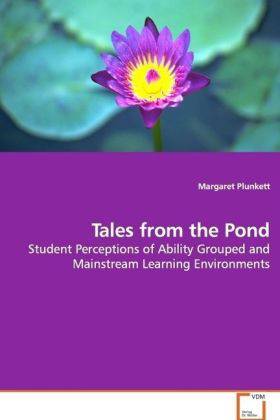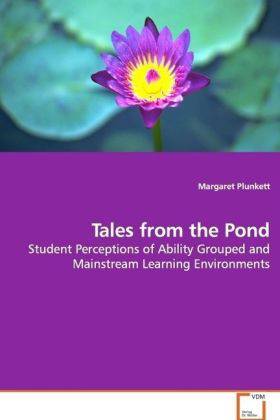
- Afhalen na 1 uur in een winkel met voorraad
- Gratis thuislevering in België vanaf € 30
- Ruim aanbod met 7 miljoen producten
- Afhalen na 1 uur in een winkel met voorraad
- Gratis thuislevering in België vanaf € 30
- Ruim aanbod met 7 miljoen producten
Zoeken
Tales from the Pond
Student Perceptions of Ability Grouped and Mainstream Learning Environments
Margaret Plunkett
Paperback | Engels
€ 115,95
+ 231 punten
Omschrijving
This book presents an alternative interpretation of a practice that tends to attract a great deal of negative press - that of ability grouping. Often viewed as elitist and a means of reinforcing the status quo in unequal societies, the educational practice of grouping on the basis of ability has engendered distrust in egalitarian Australia for many years. This study challenges this notion through examination of a disadvantaged rural secondary school's attempt to create a learning environment that is appropriate for highly able students, while not disadvantaging mainstream students not involved in the program. The metaphor of a pond is woven through the study, representing Marsh's Big Fish Little Pond Effect, which is critiqued. Through a mixed methodological approach, the views of students in both the grouped and mainstream settings were examined to determine their levels of satisfaction with their educational experience. The study found that although the ability based setting provided a suitably nurturing environment for the able students, it was not viewed as desirable by mainstream nonmembers, suggesting that appropriate provision may require different educational responses.
Specificaties
Betrokkenen
- Auteur(s):
- Uitgeverij:
Inhoud
- Aantal bladzijden:
- 288
- Taal:
- Engels
Eigenschappen
- Productcode (EAN):
- 9783639130973
- Verschijningsdatum:
- 27/02/2009
- Uitvoering:
- Paperback
- Formaat:
- Trade paperback (VS)
- Afmetingen:
- 152 mm x 229 mm
- Gewicht:
- 426 g

Alleen bij Standaard Boekhandel
+ 231 punten op je klantenkaart van Standaard Boekhandel
Beoordelingen
We publiceren alleen reviews die voldoen aan de voorwaarden voor reviews. Bekijk onze voorwaarden voor reviews.







